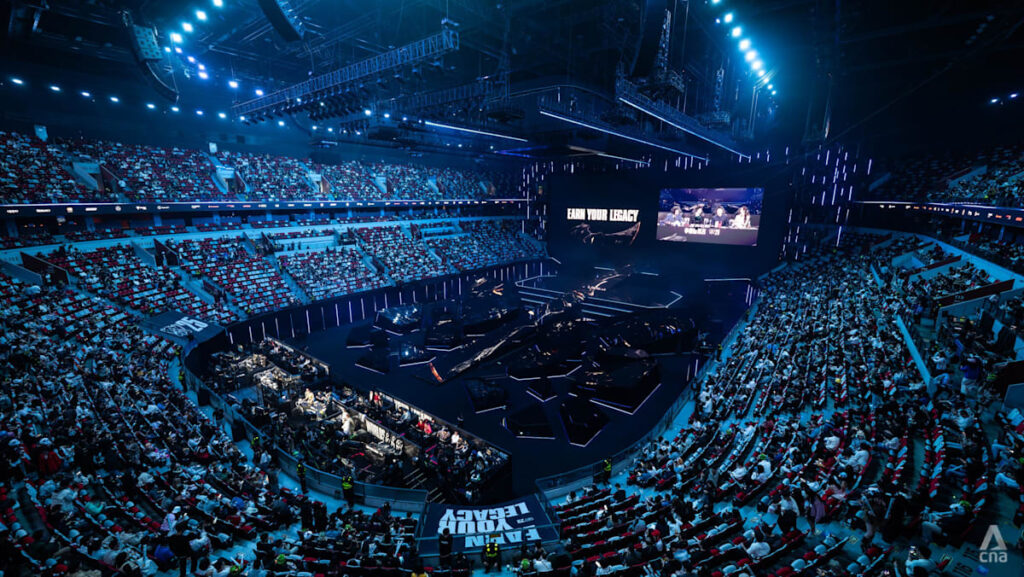Experts said this is exactly the ripple effect which city officials have been hoping for.
“Athletes, spectators and fans all bring spending on accommodation, dining, tourism and shopping,” said Zhang Keyun, a professor at Renmin University’s School of Applied Economics in Beijing.
He added that Chengdu’s economy is dominated by services, so the spillover from events fits neatly into the city’s industrial structure.
“You can’t build an event city just anywhere,” said Zhang.
“It takes scale and venues to host top-tier competitions,” he added.
Zhang described Chengdu as “the economic centre of western China”, noting that it is “one of the few Chinese cities with two international airports” and a historic cultural city with “deep cultural roots” that help lift it on the global stage.
With the opening of the Tianfu International Airport in June 2021, Chengdu has become the third city in China, after Shanghai and Beijing, to operate two international airports.
CAN CHENGDU KEEP THE MOMENTUM?
Urban development experts said the key is how Chengdu converts short-term spectacles into long-term assets.
“The wins aren’t just ticket sales, they lift everything around them: hotels, dining, tourism and transport,” said Xi Guangliang, a research fellow at Nanjing University’s School of Architecture and Urban Planning.
“And the venues stay busy rather than idle – concerts, events, community sports – that’s what keeps an event alive after the spotlight fades.”
When the League of Legends final ended, Dong’an Lake Sports Park barely had time to catch its breath.
Just days earlier, it hosted Chinese singer Zhou Shen and by the end of the month, Hong Kong veterans George Lam and Sally Yeh are set to take the stage.
Within Dong’an Lake Sports Park, snack stall Cai Dapang Fried Potatoes rarely sees a quiet day.
“There’s always a crowd,” said its manager Li Meilin, 25. “There are concerts and shows almost every week.”
Officials call this approach “one investment, many uses” – opening stadiums and arenas to the public, with many offering free or low-cost access to popular sports such as swimming, football and basketball.
That flexibility gives Chengdu a fighting chance against the “white-elephant” fate that has haunted other Chinese host cities, said Xi from Nanjing University.
Mega-events only matter if venues stay alive after the headlines fade, he added.
Nearly 70 per cent of Chengdu’s GDP now comes from services, from tourism and retail to culture and tech, according to the city’s latest statistical bulletin.
https://www.channelnewsasia.com/east-asia/chengdu-china-global-events-hub-playbook-5465411


